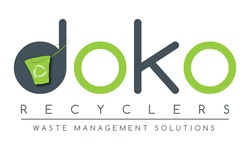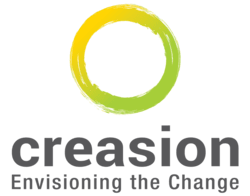The Partnership
Our study of the contribution of informal recycling sector to marine litter prevention in Africa and ASEAN was funded by the Norwegian Agency for Development Cooperation (NORAD) and commissioned by GRID-Arendal which is actively involved in shaping the project. Our collaboration has enlisted the help of two on-the-ground partner organisations, Doko Recyclers and CREASION, who are actively collecting data on the informal waste sector as part of the road-test of our new methodology.

GRID Arendal
 GRID-Arendal is a non-profit environmental communications centre based in Norway. They transform environmental data into innovative, science-based information products and provide capacity-building services that enable better environmental governance. They aim to inform and activate a global audience and motivate decision-makers to effect positive change. Their vision is a society that understands, values, and protects the environment on which it depends.
GRID-Arendal is a non-profit environmental communications centre based in Norway. They transform environmental data into innovative, science-based information products and provide capacity-building services that enable better environmental governance. They aim to inform and activate a global audience and motivate decision-makers to effect positive change. Their vision is a society that understands, values, and protects the environment on which it depends.
GRID-Arendal was established in 1989 by the Norwegian Ministry of the Environment to support environmentally sustainable development by collaborating with the United Nations Environment Programme and other partners. The launch of GRID-Arendal was an outgrowth of the World Commission on Environment and Development, also known as the Brundtland Commission.
They work closely with UN agencies, regional organisations, national governments, and other strategic partners to create positive environmental outcomes and impact, particularly in developing countries. A major focus for GRID-Arendal is supporting fulfilment of the Sustainable Development Goals, the Paris climate agreement, and other regional and international commitments. Their work is organised into programmes on Polar and Climate, Marine Environment, Waste and Marine Litter, and Transboundary Governance & Environmental Crime, supported by the Production and Communications Office and the Project Support Office.
Doko Recyclers
 Doko Recyclers is a dry waste management focused social enterprise that is spearheading Nepal’s sustainability movement by providing recycling services, including plastic waste management and promoting sustainability. Since its inception in 2017, the company has established a recycling Materials Recovery Facility (MRF) which processes 500 tons of paper, 50 tons of plastic, 80 tons of metals, 40 tons of glass and 20 tons of other scraps on an annual basis. It also has a Electronic lab (E-lab) which is a separate facility that manages 200 tons of electronic waste (e-waste) per year extracting raw resources using machinery designed to reduce hazard exposure and re-introducing saved resources back into the local economy.
Doko Recyclers is a dry waste management focused social enterprise that is spearheading Nepal’s sustainability movement by providing recycling services, including plastic waste management and promoting sustainability. Since its inception in 2017, the company has established a recycling Materials Recovery Facility (MRF) which processes 500 tons of paper, 50 tons of plastic, 80 tons of metals, 40 tons of glass and 20 tons of other scraps on an annual basis. It also has a Electronic lab (E-lab) which is a separate facility that manages 200 tons of electronic waste (e-waste) per year extracting raw resources using machinery designed to reduce hazard exposure and re-introducing saved resources back into the local economy.
In addition to its waste management practices, Doko is a prominent voice promoting sustainability, training clients and communities on sustainable lifestyles and advocating with both local and national governments to enact waste management laws. Doko’s Awareness Workshops that are designed to educate and train individuals to incorporate sustainability practices are a highly sought after service alongside its waste pickup services. As such Doko has managed to create an extensive network of both upstream partners (that generate, segregate and divert waste to Doko) and downstream partners (that recycle, upcycle and support local circular economic activities).
CREASION
 CREASION is a national not-for-profit non-governmental organization, established in 2005 A.D in Nepal. It is registered at the District Administrative Office (DAO), Kathmandu and also at the Social Welfare Council (SWC). CREASION specifically works in four thematic areas - Environment and Sustainability, Disaster Risk Reduction, Education and Advocacy, and Youth & Volunteerism to cater to the most pressing issues of the community and the environment. CREASION is one of the leading organizations working towards closing the loop of plastics. CREASION’s target populations include waste pickers, women, youth, and children. Over its 17 years of operation, CREASION has carried out interventions in all the seven provinces and built a network of over 40+ recyclers.
CREASION is a national not-for-profit non-governmental organization, established in 2005 A.D in Nepal. It is registered at the District Administrative Office (DAO), Kathmandu and also at the Social Welfare Council (SWC). CREASION specifically works in four thematic areas - Environment and Sustainability, Disaster Risk Reduction, Education and Advocacy, and Youth & Volunteerism to cater to the most pressing issues of the community and the environment. CREASION is one of the leading organizations working towards closing the loop of plastics. CREASION’s target populations include waste pickers, women, youth, and children. Over its 17 years of operation, CREASION has carried out interventions in all the seven provinces and built a network of over 40+ recyclers.
Since 2015, CREASION has been working in generating awareness in the community and nation towards waste pickers. During the first wave of COVID-19, CREASION supported 3500+ waste pickers and their families with food rations, medical checkup, and awareness programs. In the second wave of COVID-19, CREASION reached to the work place of waste pickers and distributed PPE, safety kits, food rations and advocated for vaccination and successfully vaccinated 250+ waste pickers. In 2021, CREASION mapped the organizations established by waste pickers and organizations working for the welfare of waste pickers which helped SASAJA to be a part of the International Alliance of Waste Pickers (IAWP). At the national level, CREASION has been engaged in advocacy and lobbying for proper solid waste management with all three tiers of the government, having conducted several workshops and seminars with key stakeholders to work towards the promotion of UNEA 5.2 Plastic Pollution Treaty, and to develop a strategy to meet Nepal’s Second NDC.
